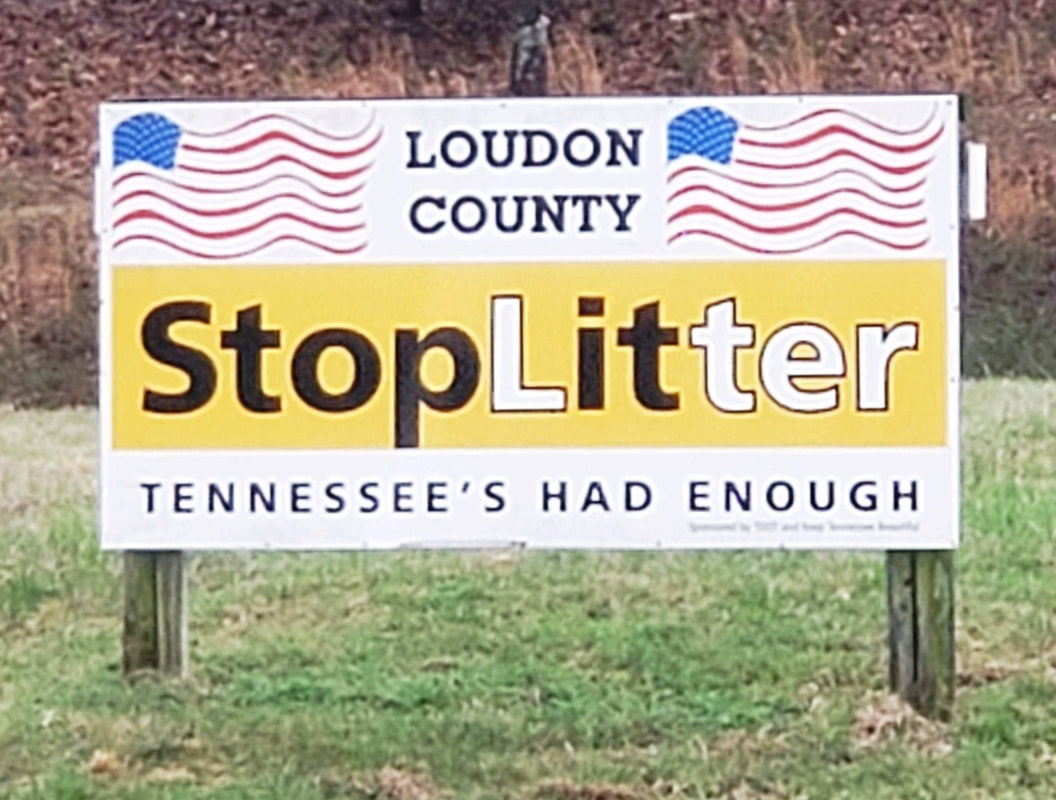While I myself do not make it a practice to litter, I find that I am still amazed at how much litter I pass by with little or no observance. And so, I conducted an experiment. My daily walk consists of about a five mile loop down to the lake and back. I decided to take a litter census on one such stroll, and was amazed to discover that I counted no less than 378 pieces of man-made trash alongside of the roadway over the course of my walk.
The vast majority of these were aluminum drink cans, plastic drink bottles, fast food wrappings, and the like. What is more, while many of them were apparently relatively newly discarded, others were faded and in various degrees of decay, indicating they had been there for quite some time.
And herein lays the trouble for me. The fact that they had obviously been there for quite some time means that it is equally as obvious that I had walked by them dozens of times without ever having once taken notice of their presence. I was convicted by this latter realization. How is it that I, who would never intentionally litter, have nevertheless been walking right on by the results of someone else’s litter completely oblivious to the mess they left behind?
As I have reflected on these things, I have been reminded of a story that Jesus once told, as recorded in the New Testament Gospel of Luke, chapter 10, verses 25-37:
One day an expert in the law stood up to test Him. “Teacher,” he asked, “what must I do to inherit eternal life?” “What is written in the Law?” Jesus replied. “How do you read it?” He answered, “ ‘Love the Lord your God with all your heart and with all your soul and with all your strength and with all your mind’c and ‘Love your neighbor as yourself.’”
“You have answered correctly,” Jesus said. “Do this and you will live.” But wanting to justify himself, he asked Jesus, “And who is my neighbor?”
Jesus took up this question and said, “A man was going down from Jerusalem to Jericho when he fell into the hands of robbers. They stripped him, beat him, and went away, leaving him half dead. Now by chance a priest was going down the same road, but when he saw him, he passed by on the other side. So too, when a Levite came to that spot and saw him, he passed by on the other side.
But when a Samaritan on a journey came upon him, he looked at him and had compassion. He went to him and bandaged his wounds, pouring on oil and wine. Then he put him on his own animal, brought him to an inn, and took care of him.
The next day he took out two denariie and gave them to the innkeeper. ‘Take care of him,’ he said, ‘and on my return I will repay you for any additional expense.’ Which of these three do you think was a neighbor to the man who fell into the hands of robbers?” “The one who showed him mercy,” replied the expert in the law. Then Jesus told him, “Go and do likewise.”
In Jesus’ story, the chief offenders were, of course, the robbers. They destroyed a life that resulted in the mess left on the side of the road. Neither the priest nor the Levite would have ever undertaken any such behavior. And yet, they too shared in the culpability, for having come upon the mess, they chose just to walk on by!
Since the events related above, I have been spending a little time while out walking picking up some of the trash I encounter alongside the road. As I have, I have asked the Lord to open my eyes to other equally tragic but far more disturbing messes that others have left behind.
For it is one thing for me to go blissfully upon life’s way without seeing the residue of discarded human debris; but it is quite another for me to do so without ever taking note of discarded human beings! May the Lord increase my sensitivity to the plight of others in need and convict me when I might otherwise just walk on by!
SCRIPTURE SOURCE: https://biblehub.com/bsb/luke/10.htm.
SIGN SOURCE: https://www.greenecoservices.com/taxpayer-cost-of-litter-in-tennessee-over-14-8-million-year/.
